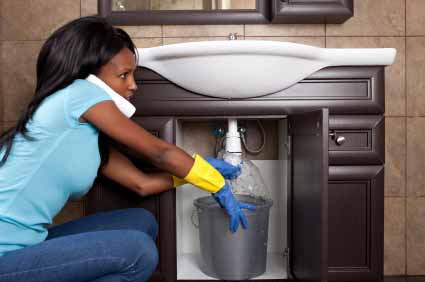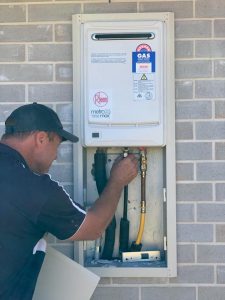The article following next in relation to Warning Signs You Need Water Heater Repairs is immensely enlightening. Give it a try and make your own personal findings.

A water heater is just one of the most vital basic devices that can be found in a house. With hot water heater, you do not require to undergo the stress and anxiety of heating water by hand each time there is a need to wash, wash, or the recipes. However, there is always a possibility that your water heater would break down similar to the majority of mechanical devices.
It is essential to note any kind of little malfunction and also tackle it rapidly prior to things get out of hand. A lot of times, your hot water heater starts to malfunction when there is an accumulation of sediments as a result of continual usage. As a preventative measure, regular flushing of your hot water heater is advised to prevent sediment build-up as well as protect against useful failing.
Typical hot water heater emergencies and exactly how to handle them
Dripping hot water heater container.
In this scenario, you need to turn off your water heating system, enable it to cool down, and also meticulously look for the source of the trouble. At times, all you need to do is to tighten a few screws or pipeline connections in instances of minor leakages. If this doesn't function as well as the leak lingers, you may require to utilize the services of a specialist for an ideal replacement.
Changing water temperature level.
Your hot water heater might start generating water of various temperatures generally ice scalding or cold warm. In this situation, the first thing you do is to make sure that the temperature is readied to the wanted level. If after doing this, the water temperature keeps changing throughout showers or other activities, you might have a faulty thermostat. There could be a requirement to replace either the heating or the thermostat system of your water heater.
Inadequate warm water
It might be that the water heating unit can not sustain the hot water need for your apartment or condo. You might upgrade your water heating unit to one with a larger capability.
Stained or stinky water
When this takes place, you need to recognize if the problem is from the water or the storage tank resource. If there is no funny scent when you run chilly water, after that you are certain that it is your water heater that is damaged. The stinky water can be caused by rust or the build-up of bacteria or debris in the water heater container.
Verdict
Some property owners overlook little caution and minor faults in their water heater system. This just brings about further damage and a possible complete break down of your home appliance. You ought to take care of your water heater faults as soon as they come near stay clear of even more costs as well as unnecessary emergency troubles.
With water heating systems, you do not need to go through the stress of home heating water manually every time there is a need to take a bathroom, do the laundry, or the dishes. Your water heating system might start producing water of various temperature levels usually ice cold or scalding hot. It might be that the water heating system can't sustain the hot water demand for your home. If there is no amusing smell when you run cold water, then you are certain that it is your water heating system that is damaged. The stinky water can be created by corrosion or the buildup of microorganisms or sediments in the water heater tank.
What’s Wrong With My Water Heater?
Not Enough Hot Water
You probably encounter this problem in the shower or while washing dishes. As you run your water, you’ll notice it starting to cool down. Turning up the hot faucet may not work, or it may only heat the water for a short period. Your hot water probably comes back and works normally one or two hours after you use it up.
If you’ve never had enough hot water, your heater may be too small for your home. If you haven’t had a problem until recently, there’s probably something’s wrong with your heater’s thermostat. Try adjusting it to see if you can feel a difference. Even if the thermostat’s working, the heating element itself could have burnt out. It’s also possible that a clog has restricted water flow into or out of the heater. Luckily, none of these problems are hard to fix, as long as you call them in early.
Water is Too Hot
Unregulated water heaters can make water dangerously hot. You probably have this problem if you’ve been scalded by your hot water. It’s also a likely culprit if you have trouble getting your faucets to produce a comfortable temperature. This problem is easy to fix, but it can also be a serious health hazard if you don’t address it. If you think your water is too hot, don’t doubt yourself; look into it!
Start by finding your heater’s thermostat and mark its position with a pen. Turn the thermostat to a cooler setting. Wait a couple hours to see if the problem is solved. If it isn’t, listen for boiling in the tank and look for water that comes out of the faucet steaming. In those cases, your temperature-pressure relief valve may be malfunctioning. This is a serious problem that can be dangerous, so you should have it looked at right away.
Discolored or Smelly Water
If all your water looks rusty or smells weird, there’s probably a problem with your pipes. If only your hot water looks weird, however, your water heater is probably at fault. Hot water discoloration comes in several varieties. It could look orange or brown-ish, taste rusty, or feel grainy. It could also look yellow or green-ish and taste gross or feel slimy. Either way, it’s a sign that there’s something wrong with your water heater’s tank.
Usually, hot water discoloration means sediment has built up in your tank. Sediment is made up of hardened minerals that accumulate on the inside of the water heater’s walls. When enough sediment builds up, it causes all kinds of problems–including your discolored water. Try flushing your water heater tank to clean out built up sediment. If the water still tastes rusty, your tank’s rust-preventing anode rod may have worn out. A pro can replace an anode rod easily, but without one, your tank could rust beyond repair relatively quickly.
Leaking
Water heaters can leak from several different places, and each leak means something different. If the leak is coming from a pipe above the heater, it’s possible the tank itself hasn’t been compromised. The cold inlet, hot outlet, and T&P pipes could all leak from above. Try tightening the problematic valve. If that doesn’t work, then the valve or pipe will have to be replaced.
If the leak is coming from the bottom of the tank, it’s important to determine exactly where it is. The leak could be coming out of the drain valve or your T&P valve below the tank. You can replace those valves and preserve the tank itself. If you notice the water tank itself leaking, however, that probably means it’s corroded beyond the point-of-no-return. Leaking water heaters are a big deal, so you should get yours replaced ASAP.
https://www.punctualplumberdallas.com/blog/whats-wrong-water-heater/

Do you like reading about Is Your Water Heater Leaking?? Try leaving a short review further down. We will be pleased to listen to your reactions about this write-up. We hope to see you back again in the future. Don't hesitate to take the time to promote this post if you enjoyed it. I thank you for reading our article about Common Hot Water Heater Problems.
Overflow? Ring now!
Comments on “Methods to Cope with the Major Hot Water Heater Urgencies”